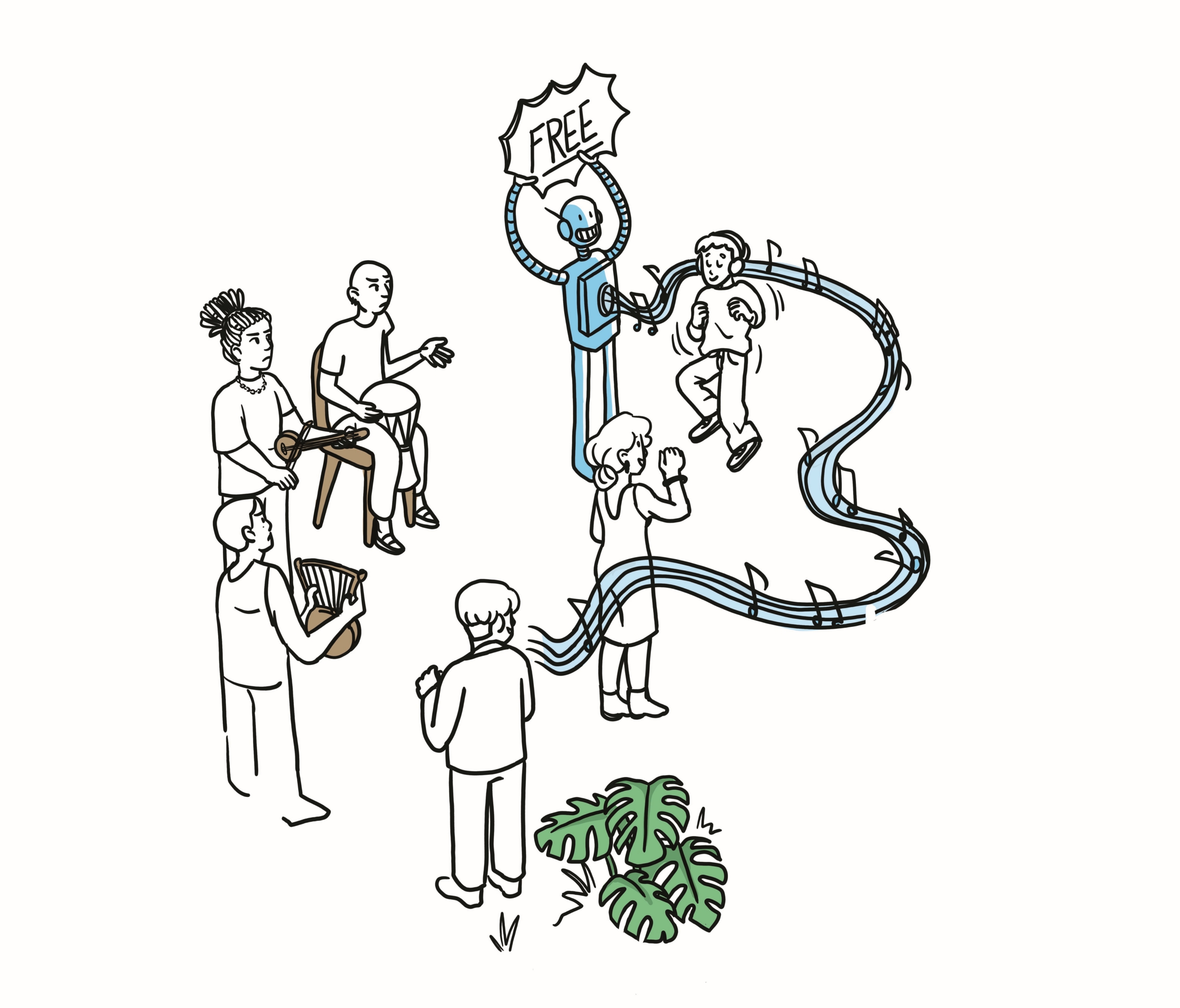Being human in the time of neuroscience and artificial intelligence involve carefully exploring the nexuses of complexity where valid ideas are nevertheless in tension, manifesting subtleties and challenges that must not be overlooked. Each page expresses the existing tension(s) between ideas and within each theme, which emerged in the collective discussions, and are then complemented by insights from NHNAI network researchers.
Complexity on democracy #4: AI and work automation

Participants pointed out the need to find a balance between automation of tasks at work and human labor and dignity. Although it is undeniable that AI technologies will trigger enormous gains in efficiency and productivity, participants worry about the manner the benefits will be shared (especially within the framework of a “cost-free” business model where services are provided “for fee” In exchange of data). Will possible gain in efficiency trigger additional pressure to produce? Possible impacts on employment and people’s financial resources could threaten democracies themselves. Beyond the financial dimension, some participants highlight the fact that human flourishing comes from performing given social roles and from having a purpose. Some wonders about issues linked to assessing and rewarding merit. Other participants also express concerns about the prospect of being forced to create a duplicate or an improved version of themselves at the risk of losing their own identity.
Insights from NHNAI academic network:
In recent study on AI impact on employment by the Belgian bank ING, one can find an interesting survey reflecting “a paradoxical perception of AI”:[1]
The ING study was accompanied by a representative survey of a thousand Belgians on the impact of AI on employment and society (conducted at the end of 2023). The most striking result is that 42% of Belgians believe that AI will lead to job losses, but only 3% fear for their own jobs. What’s more, 15% think that AI will have a major impact on their work (see graph below). This is true across all age groups, genders and professions.
Belgians therefore believe that AI will have a negative impact on the global labour market, but not on their own jobs. This apparent contradiction often emerges from surveys: citizens tend to have a negative perception of the impact of AI on society in general, while a positive feeling often prevails about what (gen)AI can mean for them in concrete terms. The paradox can probably be explained by the many negative communications about the dangers of AI, whereas the positive impact of a new technology should come mainly from practice and personal experience. Many workers using GenAI report a positive experience and make good use of the time freed up.
[1] (Our translation) https://www.agoria.be/fr/services/expertise/digitisation/intelligence-artificielle/impact-de-lia-sur-le-marche-du-travail-belge-des-bouleversements-mais-sans-augmentation-du-chomage-etude-ing

